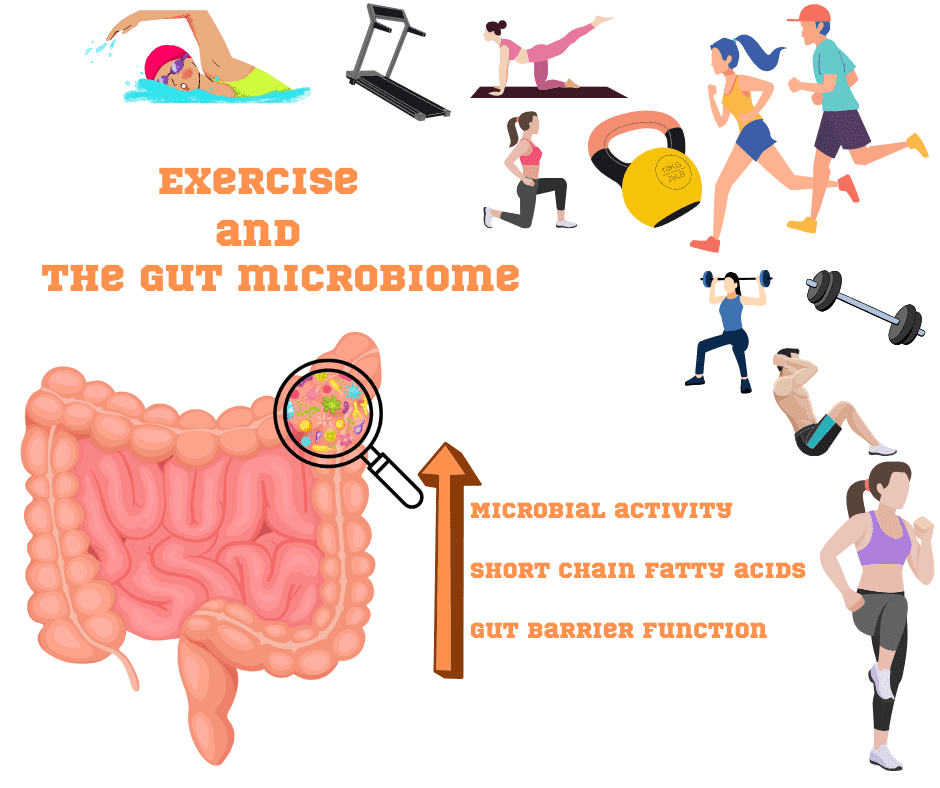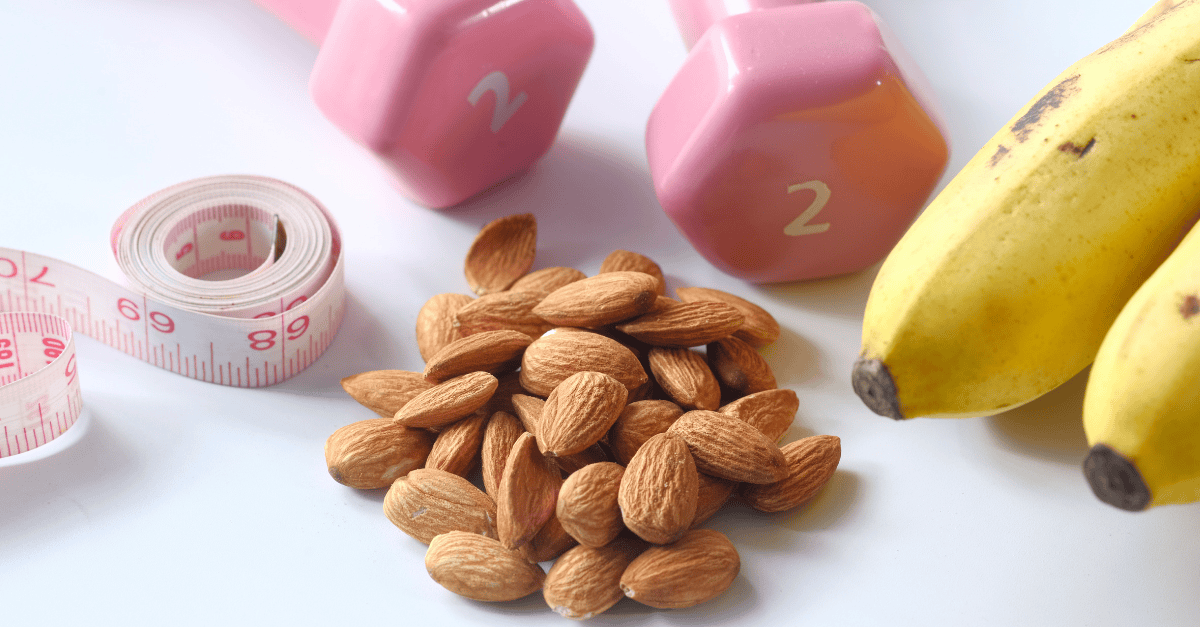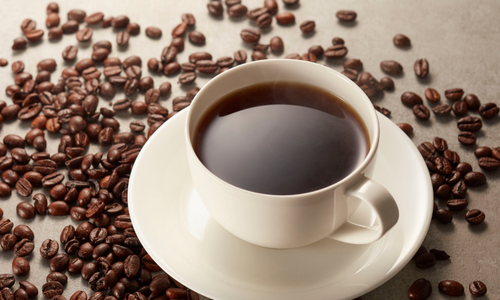Introduction: Exercise Beyond Muscles and Calories
When we think of exercise, we often associate it with building muscles, burning calories, or improving cardiovascular health. But what if some of the most profound changes occur deep inside your gut?
The human gut microbiome, home to trillions of microbes, plays a vital role in digestion, metabolism, immunity, and even mental health. While diet is typically viewed as the most important factor influencing gut health, research now shows that exercise and gut health are closely connected.
Recent studies reveal that physically active individuals have a more diverse and balanced gut microbiome compared to sedentary people. This microbial diversity ensures stronger immunity, better nutrient absorption, and protection against chronic diseases.

How Exercise Affects the Gut Microbiome
Your gut microbiome, sometimes referred to as the body’s “second genome”, influences immunity, nutrient absorption, and overall wellness. Unfortunately, modern sedentary lifestyles and poor diets reduce microbial diversity, contributing to obesity, diabetes, depression, IBS, and chronic inflammation.
Exercise helps restore balance to the gut ecosystem by:
- Boosting microbial diversity: Moderate exercise increases beneficial bacteria like Bifidobacterium and Akkermansia, which strengthen the gut barrier integrity and reduce inflammation.
- Supporting digestion and metabolism: Physical activity improves blood flow that enhances nutrition availability, improves digestion and boosts metabolism.
- Enhancing immune function: Exercise improves blood flow, strengthens gut lining integrity, and promotes short-chain fatty acid (SCFA) production, which lowers inflammation.
- Regulating gut balance: It reduces harmful bacteria while supporting butyrate-producing microbes that protect against inflammation and chronic disease.
This gut muscle axis shows that workouts don’t just strengthen muscles ,they also strengthen gut health, making exercise a pillar of preventive medicine.
The Balance: Moderate vs. Intense Exercise
Not all exercise affects the microbiome the same way:
Moderate aerobic exercise: Activities such as brisk walking, jogging, cycling, and swimming enhance microbial richness, increase SCFA production, and reduce gut inflammation.
Excessive endurance training: Overtraining without proper recovery can temporarily disrupt gut balance, increase intestinal permeability, and cause symptoms like bloating, cramping, or diarrhea.
Consistency matters! The positive effects of exercise on the microbiome can diminish within weeks of inactivity. A sustainable, moderate routine is more beneficial than short bursts of intense exercise.
Probiotics and Gut Health for Active Lifestyles
Pairing exercise with probiotics creates powerful synergy:
Improves microbial diversity and gut barrier strength.
Enhances digestion and nutrient absorption.
Produces SCFAs like butyrate to reduce inflammation.
Reduces oxidative stress and supports faster recovery in athletes.
For those with intense training schedules or gut sensitivity, probiotics help stabilize the microbiome and minimize digestive issues. Many athletes report better energy, reduced gastrointestinal distress, and faster recovery when combining exercise with probiotics.
Also Read: How Probiotics Shape Gut Microbiome, Immunity, and Brain Function
Diet, Nutrition, and Gut Microbiome Support

To maximize the benefits of exercise on gut health, combine it with a supportive diet:
Eat fiber-rich foods (fruits, vegetables, legumes, whole grains) to fuel beneficial microbes.
Incorporate fermented foods (yogurt, kefir, kimchi, sauerkraut) for natural probiotics.
Stay hydrated to aid digestion and nutrient absorption.
Avoid highly processed foods, refined sugars, and artificial additives that disrupt microbial balance.
A balanced approach to exercise, diet, and nutrition lays the foundation for long-term gut health and overall wellness.
Conclusion: Exercise as a Gut Health Superpower
Exercise is more than a tool for weight loss or fitness, it’s a gut health regulator. By improving digestion, reducing inflammation, boosting immunity, and enhancing microbial diversity, moderate regular exercise supports both body and mind.
When paired with probiotics, fiber-rich foods, and hydration, exercise becomes a cornerstone of a healthy gut microbiome and lifelong wellness. The exercise, gut connection shows how small daily choices, like movement and nutrition ,can profoundly shape long-term health.
-Shriya Chandana S
REFERENCES
Clauss, M., Gérard, P., Mosca, A., & Leclerc, M. (2021). Interplay between exercise and gut microbiome in the context of human health and performance. Frontiers in nutrition, 8, 637010.
Wegierska, A. E., Charitos, I. A., Topi, S., Potenza, M. A., Montagnani, M., & Santacroce, L. (2022). The connection between physical exercise and gut microbiota: implications for competitive sports athletes. Sports Medicine, 52(10), 2355-2369.
Min, L., Ablitip, A., Wang, R., Luciana, T., Wei, M., & Ma, X. (2024). Effects of exercise on gut microbiota of adults: a systematic review and Meta-analysis. Nutrients, 16(7), 1070.
Monda, V., Villano, I., Messina, A., Valenzano, A., Esposito, T., Moscatelli, F., ... & Messina, G. (2017). Exercise modifies the gut microbiota with positive health effects. Oxidative medicine and cellular longevity, 2017(1), 3831972.


